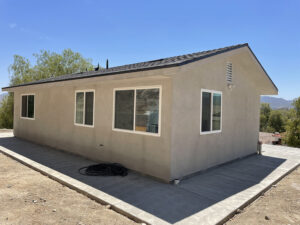Building ADUs in California used to be pretty impossible because of all the barriers homeowners were faced with. Just recently, though, a total of six California ADU bills were passed to help knock down these barriers. Although the passage of these bills is exciting, it also means many new changes that are difficult to follow. Let’s learn more about New California ADU law 2020 and what that means for your construction projects:
To help navigate these bills, we have provided you with a quick summary of each one, written in words a layperson can understand. Feel free to reach out to 360Builders with any questions and queries.
New California ADU Laws 2020
1. California ADU LAW – SB 13
The California ADU Bill SB 13 is one of the most important ones to pass. The bill itself is filled with several components designed to make building ADUs easier for property owners.
Parking
Before SB 13 passed, property owners were required to replace all of the parking spaces on their property that were lost when they converted a covered parking space, carport, or a garage into an ADU or if they demolished them. This bill eliminates the parking requirement. If the home is more than half a mile away from public transportation, the parking spots must be replaced, but the existing driveway serves this purpose.

Owner Occupancy Rules
Previously cities were able to enact strict laws in regards to owner occupancy and ADUs. With the passage of SB 13, they can no longer make owners occupy the dwelling for a minimum of five years.
Waive Impact Fees
Permits and impact fees are a large part of ADUs. Getting permits approved through the local permitting office took up to 120 days. SB 13 cut time in half, so the approval process now only takes 60 days. Impact fees no longer apply to ADUs that are less than 750 square feet if it’s over the fees are directly proportional to the square footage.
2. AB 670 – HOAs and ADU
As a governing body, HOAs were one of the select few who could override state laws. This allowed them to prohibit homeowners in their association from building any ADUs on their properties. AB 670 takes that power away from HOAs. They can still establish general guidelines regarding unit sizes and rental terms, but they can’t stop homeowners from building an ADU on their property.
AB 670 also brings in the amnesty program for illegally built ADUs. If there is an ADU on your property built without securing the proper permits and/or inspections, you have five years to get things up to code. This doesn’t apply to any issues that are in direct violation of health and safety.
3. AB 671 – Affordable Rent
Ab 671 uses government incentives to help lower the cost of building ADUs to keep their rent affordable. Within this bill, the Department of Housing and Community Development is to put together a full list of financial incentives and state grants available for operating, administrative, and other costs related to building, planning, or operating ADUs with affordable rent.
4. California ADU LAW – AB 881 and AB 68
Although these two California ADU Bills are separate from each other, they both cover the same things and are worded remarkably similar.
Setbacks
When building ADUs, there were some extremely strict setback requirements homeowners had to deal with. Under AB 881, these setback requirements are easier to deal with.
Minimum Lot Size Requirement Gone
With the passage of this bill, there is no longer a minimum lot size requirement for ADUs. All other property requirements must be met, though.
One Property – Two Units
With these new bills, your property can now have two units, as both a JADU and an ADU can now be built on the same property. A JADU is different from an ADU as it is a living unit created out of a bedroom in the primary building.
5. AB 587 – Low-Income Housing
One of the biggest reasons so many ADU bills have been passed in California is to help with the housing crisis. AB 587 is written specifically for those who require low-income housing. For properties owned by nonprofits corporations, the ADU may be sold separately from the primary building to a qualified buyer, as long as certain conditions are met. To be eligible, the nonprofit corporation must be rehabilitating and building these strictly for low-income housing.
How is California ADU LAW Enforced?
Even if the cities are not happy with these new bills, there isn’t much they can do as they are now state laws. If the city you are building in is refusing to honor these new California ADU laws, you can fight back. As the Housing and Community Development Department is enforcing these new state laws, your best choice is to contact them if you need help.







